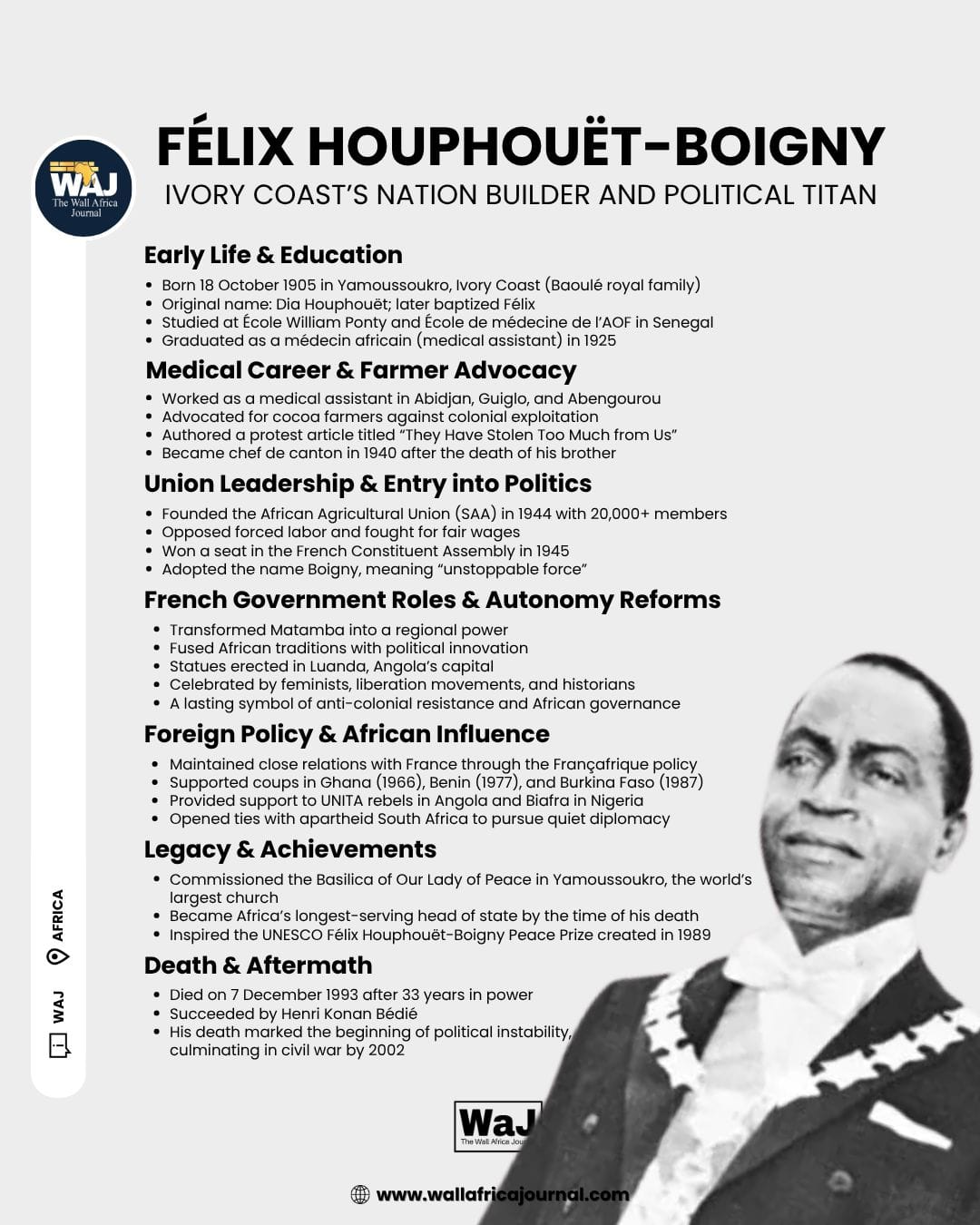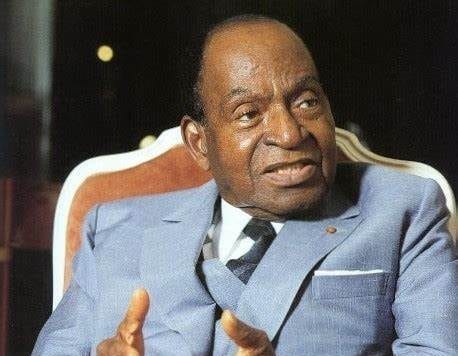
Félix Houphouët-Boigny (1905–1993) was the first President of Côte d’Ivoire and a key architect of the nation’s independence. Originally a medical assistant and tribal chief, he rose to political prominence in the 1940s, serving in the French parliament and founding the African Agricultural Union to defend farmers’ rights.
He led Ivory Coast to independence in 1960 and ruled for 33 years, overseeing an era of economic growth known as the “Ivorian Miracle.” A master of diplomacy, he maintained close ties with France, promoted regional stability, and built the world’s largest church in his hometown of Yamoussoukro.
Though criticized for autocratic rule, Houphouët-Boigny remains a towering figure in African politics, celebrated for his commitment to development, peace, and national unity. His legacy lives on through the UNESCO Félix Houphouët-Boigny Peace Prize.



